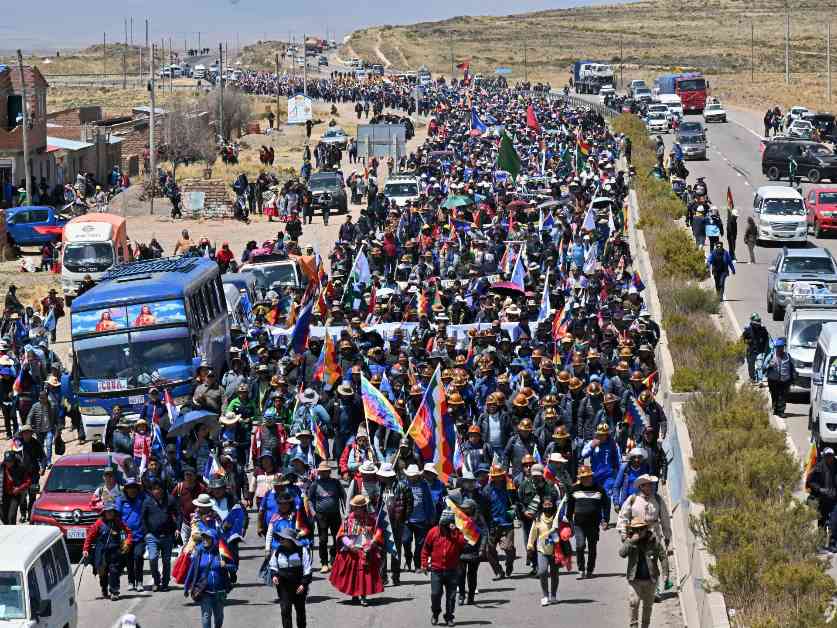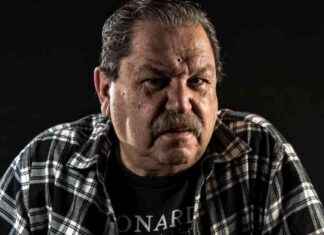Political Turmoil in Bolivia: Morales Challenges Arce in Antigovernment Protest
The political landscape in Bolivia has been thrown into turmoil as former allies turned rivals, Evo Morales and Luis Arce, engage in a high-stakes power struggle. The popular and controversial former leftist president, Morales, has called on his supporters to take to the streets in protest against the current President, Arce. This move has sparked a series of antigovernment protests and road blockades, leading to escalating tensions in the country.
March to Save Bolivia
Morales announced a weeklong “March to Save Bolivia” after Arce accused him of attempting to overthrow the government in a coup. Antigovernment protesters, including Indigenous activists and peasant leaders, have blocked roads in and around the capital city of La Paz, demanding Arce’s resignation due to his mismanagement of the economy. The protests have also affected key tourist destinations like Lake Titicaca, highlighting the widespread discontent with the current administration.
“It’s an incompetent government that we have, and it won’t solve the economic crisis,” said Pablo Merma, a peasant leader of the Red Ponchos, a group of rebel Indigenous activists. The dissatisfaction with Arce’s government stems from issues such as fuel shortages, dwindling foreign currency reserves, and overall economic instability, driving many Bolivians to support Morales in his efforts to challenge the incumbent president.
The Arce-Morales Rift
The rift between Arce and Morales has polarized Bolivia, with the two former allies now engaged in a bitter political showdown. Despite Arce being Morales’s former economy minister and his candidate in the 2020 elections, their relationship soured when Morales returned from exile with ambitions of making a political comeback. The power struggle between the two leaders has created a sense of turmoil in Bolivia, with soldiers even attempting a coup in June in the midst of the escalating tensions.
The ongoing political and economic crisis in Bolivia has led some to look back nostalgically on Morales’s tenure, where he was known for reducing poverty and implementing policies that benefited the country’s most vulnerable populations. However, Arce has accused Morales of attempting to sabotage his administration and undermine democracy, further fueling the power struggle between the two political heavyweights.
Threats to Democracy
In a dramatic televised speech, Arce declared Morales’s actions as a threat to democracy and the stability of Bolivia. He accused Morales of trying to return to power by any means necessary, putting the entire country at risk. The accusations and counter-accusations between Arce and Morales have heightened tensions in Bolivia, with the specter of past political turmoil and violence looming over the current situation.
The social movements in Bolivia, including coca cultivators, Indigenous tribes, and workers, have rallied behind Morales, staging protests, marches, and road blockades to show their support for the former president. The ongoing antigovernment protests and the growing discontent with Arce’s administration indicate a deep-seated frustration among the Bolivian populace, with many calling for a change in leadership to address the country’s pressing economic and political challenges.
As the political standoff between Morales and Arce intensifies, the future of Bolivia hangs in the balance. The outcome of the antigovernment protests and the power struggle between the two leaders will have far-reaching implications for the country’s democracy and stability. As tensions continue to mount, Bolivia finds itself at a crossroads, with the fate of the nation hanging in the balance.



























